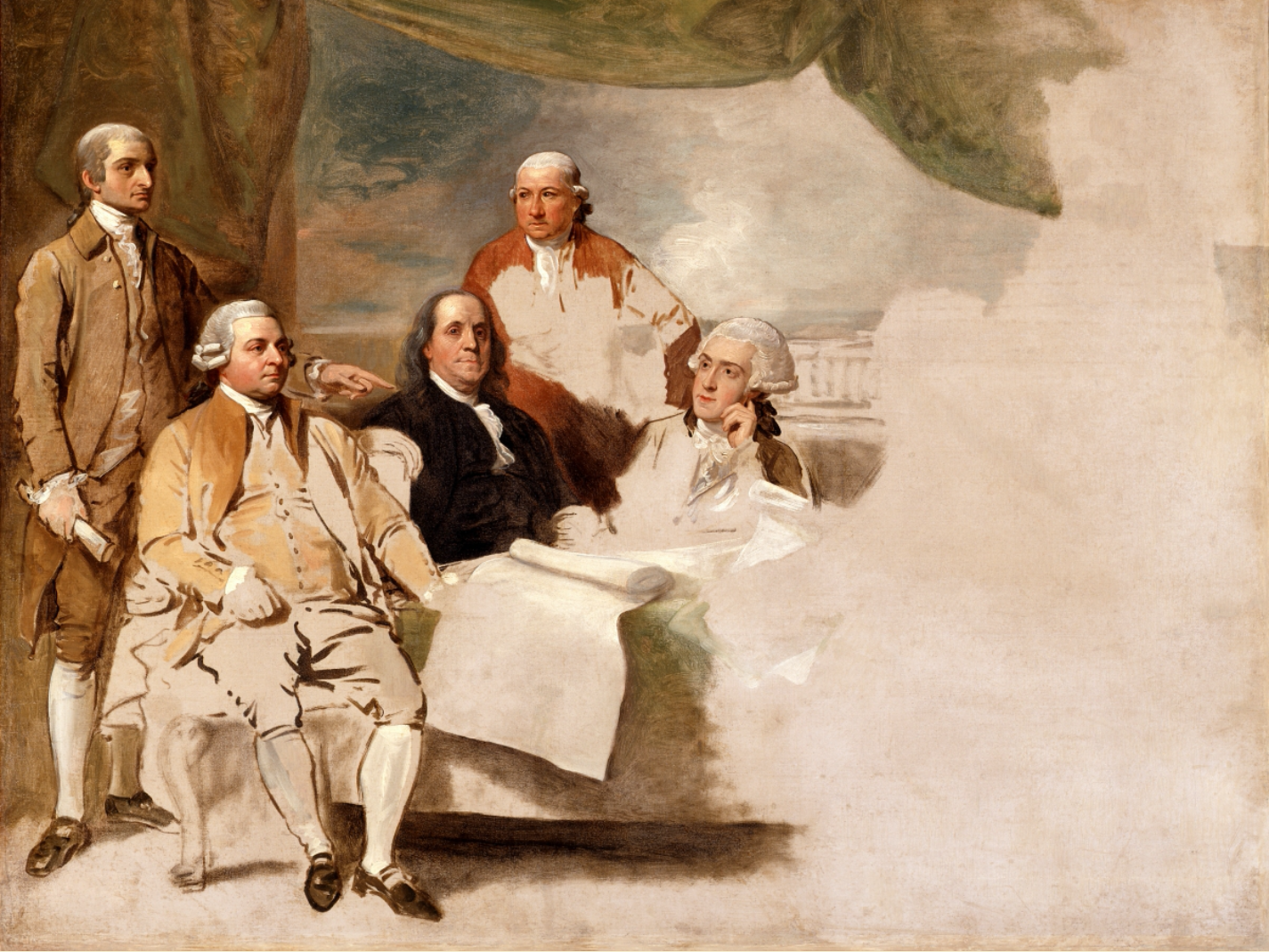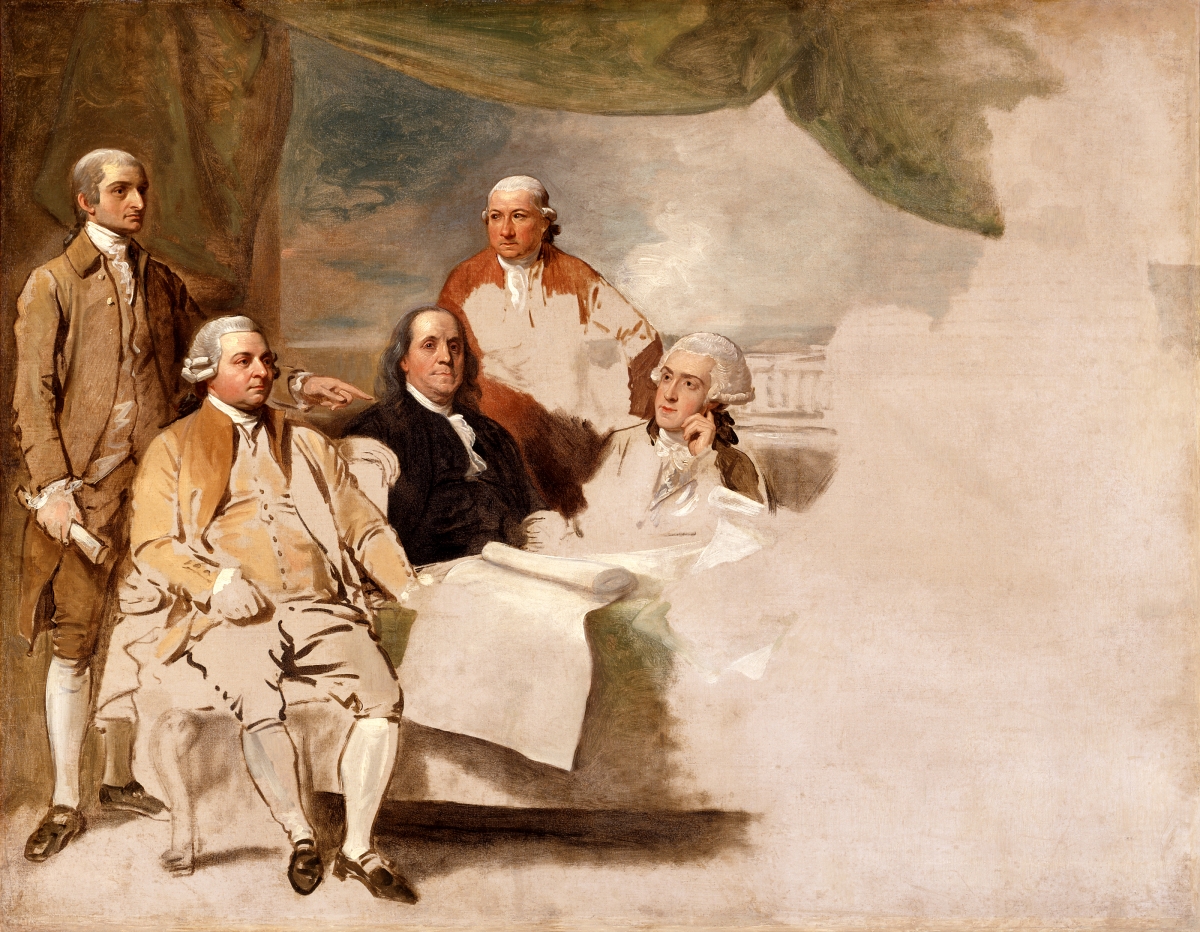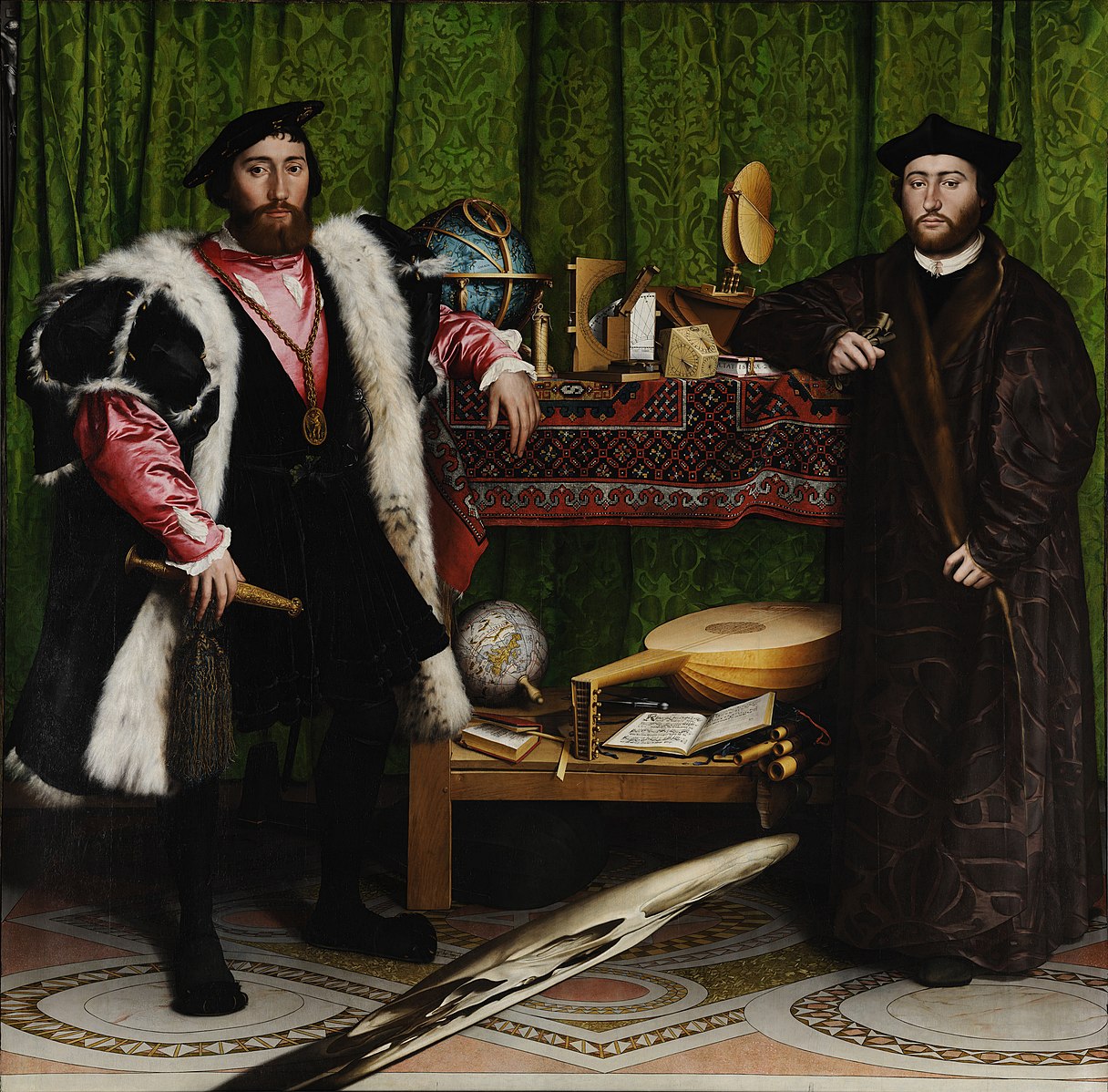
The Opportunity Cost of Culture
“Alas poor Yorick! I knew him, Horatio.”
– Shakespeare, Hamlet 5.2
Most readers feel the tug of a natural law in James Madison’s Federalist 51 (1788). This effect owes to the essay’s analogy between individuals and factions. Like Locke and Defoe, Madison reduces his case against majority rule to its essential elements. This hints at Hegel’s master-slave allegory (1807), except that in lieu of a fight ending either in death or submission, Madison’s actors imagine themselves as slaves when a third player arrives on the scene. This tempers their confidence in government, and the dictum “might makes right” gives way as consenting parties agree to constrain majority power in order to avoid being dominated:
In a society under the forms of which the stronger faction can readily unite and oppress the weaker, anarchy may as truly be said to reign as in a state of nature, where the weaker individual is not secured against the violence of the stronger; and as, in the latter state, even the stronger individuals are prompted, by the uncertainty of their condition, to submit to a government which may protect the weak as well as themselves; so, in the former state, will the more powerful factions or parties be gradually induced, by a like motive, to wish for a government which will protect all parties, the weaker as well as the more powerful. (Federalist 51)
Of course, the key to this arrangement is “uncertainty.” Madison’s two parties have suffered, or else fear suffering, governmental abuse. American colonists had long fled oppression in England, and the Republic was still emerging from a revolutionary war. His readers may favor or oppose the new Constitution, but Madison argues that their shared experiences of tyranny and crisis should prompt cooperation. American constitutional theory originates as an awkward and spontaneous attempt at social coordination in the shadow of violence and anarchy. Madison’s desire to handicap government distinguishes him from Hobbes, Bodin, or Machiavelli. Reducing the power of dictators accords with his attraction to such politically asymmetrical ideas and institutions as federalism, supermajorities, and the Senate.
By contrast, the certainty of living in modern nation-states with advanced healthcare systems, low unemployment rates, diverse and adaptable economies, and respectable police forces reduces the urgency of the “minority principle” at the heart of Madisonian democracy. That the citizens of so many modern societies look and dress the same further disguises our internal and external tensions. As homogenized moderns, it’s easy to forget that other groups of people think and feel differently than us about many issues. We forget, too, that people who want to coerce their neighbors both at home and abroad can rise to power in all human societies.
Madison’s answer to this dilemma was to constitutionally guarantee the over-representation of numerical and regional minorities in the governance of his new nation-state. Classical liberalism is doubly anti-democratic in this respect. The people of California (40 million inhabitants) have two senators just like Wyoming (575,000 inhabitants); six different states each send one member to the House of Representatives; and Washington, D.C. has zero votes anywhere in Congress. These are just some of the ways by which the American system retains an oblong approach to such sociopolitical issues as laws, taxes, policies, agencies, and foreign relations. We don’t hold national referendums on these topics because we remain skeptical of the political wisdom of crowds. American conservatives like Madisonian democracy; we think it places healthy Peloponnesian and Nebraskan breaks on the insanity emanating from Athens and San Francisco. We like to think that our philosophy protects a patriotic spirit of radical individualism against the creative, but sometimes destructive, impulses of urban mobs led by demagogues.
But this view of power also implies social concerns. Madison’s triadic allegory in Federalist 51 posits the minority principle as the logical grounds for sustaining radical individualism; but it also posits the need for states and factions. The United States is a multiregional empire and a representative republic, not a pure democracy. As such, we sacrifice individual autonomy in order to allow the political blocs needed to protect that autonomy. It’s a functional paradox. We defend the freedom of individuals in a way that is both sacrificial and sociological. We surrender our right to rule by a simple majority (“might”), and instead we accept politics as an exasperating process of building short-lived coalitions of voters. These coalitions must then expend their political capital to achieve their goals. In theory and practice, this allows us to avoid unwise urges and fix our inevitable mistakes.
Our curiously patriotic individualism is further compatible with a concern for group rights insofar as it views the modern nation-state as a system beyond which we must proceed with caution. World government poses risks to the sovereignty of countries and the individuals within them. Thus, a liberal theory of international relations takes shape according to the same triadic pattern found in Madison’s allegory for domestic relations. Two factions and the possibility of a third, which might join either against the other, imply that if we want to avoid conflict, then continuous political compromise must occur at the messy margins between individuals, factions, and nation-states.
[Related: “Sum, ergo cogito: ‘I am, therefore I think'”]
We don’t need to know the ideological content of political groups in order to predict their existence, either domestically or internationally. Alexis de Tocqueville noted that party politics within a nation-state disguises the reality of two nations locked into an internecine conflict. From this perspective, the roughly 800,000 killed during the American Civil War (1861–65) resulted from a struggle between the different nations that the Frenchman had observed on the opposite banks of the Ohio River in 1835 (see Democracy in America, 1.2.10). The danger of factions growing unrecognizable to each other is easier to imagine in international relations, where linguistic and cultural differences are more overt and crises and uncertainties more tangible.
The idea that domestic and international relations are similar is evidenced by John Jay’s role in Alexander Hamilton’s effort to convince Americans to accept their new Constitution. In Hamilton’s mind, Jay brought balance to The Federalist Papers (1787–88) due to his experience with treaties and international relations. In this sense, Jay made his greatest contribution to Hamilton’s project in Federalist 64, where he discusses the Senate as the constitutional inflection point between the Southern interests represented by Madison and the Northern interests represented by Hamilton. Mixing the idealism of an abolitionist with the realism of a globalist, Jay forged the lynchpin of an eighty-year peace between the North and the South. In 1783, he achieved something similar, albeit of shorter duration, between the U.S. and Britain.

Benjamin West, American Commissioners of the Preliminary Peace Agreement (1783)
Left to right: John Jay, John Adams, Ben Franklin, Henry Laurens, and Temple Franklin
***
What is a culture or a nation? In the traditional European sense, we associate cultures with nations, and we think they reflect the existence of racial, ethnic, and linguistic groups. From there it’s a question of how much shared governance signals a social order that is not only a nation but a nation-state. Thorny issues accompany this line of inquiry. How should we imagine nations that extend beyond the borders of nation-states? How do we think about the Anglosphere or the Spanish-speaking world? What about nations that exist inside nation-states? We are bound to produce contradictions and new questions. For example, if Britain and the U.S. are no longer the same nation, then what is happening along the border between Texas and Mexico?
An economist’s approach to cultures or nations can clarify some of these questions. Nobel Prize winner Ronald Coase explained that Adam Smith’s theory of human nature—which economists and their critics often overlook—posits social contexts that lower transaction costs for their participants. Just as a family sees to the education of its own children better than would a stranger, a society facilitates exchanges among people who recognize each other in cultural terms.
At the other end of the spectrum of human relations, as Smith says in The Theory of Moral Sentiments, a society “cannot subsist among those who are at all times ready to hurt and injure one another” (*). Smith’s view is optimistic because it signals that a functioning society evinces people’s desire to cooperate. Coase likes Smith’s thinking too because it allows different motives, ranging from the charitable to the egocentric, to have public benefits. Without discarding such optimism, I would emphasize that the morally coherent society necessary for commerce, wealth, and progress also carries costs. These include barriers to entry for outsiders and some sacrifice of personal autonomy in the process of learning how to navigate the behaviors, perspectives, and languages of any culture.
[Related: “Thucydides on Commerce and Freedom”]
The blurry lines between cultures will vary according to the angles of our approaches to them as well as the parameters we choose to measure. For this reason, we should also expect to find agile people like Jay on the scene, who color it in precise ways and from a position nearer to the margins than most of us. I wager many of Jay’s views, habits, and skills, even his feelings, are shared today by the people who work at the U.S. Department of State. I’m speaking not just about their outlook on life but about their actual experience of it. At the margins of nation-states, some people develop a cultural in-betweenness. They end up working, thinking, and being along lines that distinguish them from the citizens of the nation-states in which they were born.
I used to think the monstrous blob formed by the anamorphic skull at the base of Hans Holbein the Younger’s The Ambassadors (1533) meant “Memento mori.” Latin for “Remember you die,” the phrase was used by ancient Romans to remind triumphant generals and senators to behave according to notions of civic virtue and imperial glory. It was the motto of French diplomat Jean de Dinteville, the man to the left of Georges de Selve in Holbein’s double portrait, and so it makes sense to find a visualization of it hovering above the floor at his feet.

Hans Holbein the Younger, The Ambassadors (1533)
Left to right: Jean de Dinteville and Georges de Selve
But this raises the question of why Dinteville brandished the motto to such an extent. It also raises the question of why Holbein rendered the motto in the form of an anamorphic blob. Surely this relates to the profession on display. Diplomacy seeks perspective, harmony, and stability in lieu of conflict or war. A twisted skull symbolizes the mental gymnastics required for effective foreign relations. More ominously, it signals the risk of much death should they fail.
A professional sense of Holbein’s anamorphic skull is supported by the circles and squares under Dinteville’s feet. During the reign of Henry VIII (r.1509–47), diplomacy increasingly amounted to “squaring the circle,” i.e., futile attempts to avoid a conflict between incommensurable worldviews in the wake of Luther. A new social order exited Catholic Europe in the form of the breakaway republic of Protestant England. The eventual heir to the governance of that new order, Elizabeth I (r.1558–1603), was born the same year as Holbein’s masterpiece.
There is a deeper sense in which The Ambassadors reflects on the profession shared by Dinteville, Selve, and Jay. Differences in culture, language, and perspective are deadly to the culture, language, and perspective of those seeking intercourse at the frontiers between them. To understand other nations takes work, time, and sacrifice. Becoming culturally, linguistically, and politically competent enough to exchange communication across national borders has costs. Among these is a lessened ability to access, understand, or endorse certain aspects of one’s own culture. A kind of death ensues, an opportunity cost of the self. Someone like Jay can be neither Northern nor Southern; he must be compromising. Such people are walking contradictions, but that is what makes them successful and useful.
What are the implications of the opportunity costs of culture? If we assume no nation wants the burden of conquering and ruling the world, then as global citizens we must constantly cultivate the minority principle over time in order to sustain the liberty of free nations. Smaller nations as well as individual ambassadors are the necessary weirdos on the global stage who function like the swing voters of a domestic dispute. They facilitate compromise. The flipside is that we cannot expect our own nation’s diplomats to be much like us. To be effective, they must transform themselves into anamorphic blobs. The U.S. Department of State will never be a recognizable bastion of American conservativism.
(*) Coase, Ronald. “Adam Smith’s View of Man.” Annual Meeting of the Mont Pelerin Society, St. Andrews, 1976.
What’s often forgotten is that only a third of Americans supported the Revolution, and another third actively opposed it. The persecution of the latter was the origin of the term “Lynching” and “Lynch Law” — it predates the Jim Crow era.
Massachusetts passed a law sentencing specific individuals (“Notorious Tories”) to death if ever found again in Massachusetts. (Most went to Maine and lived under assumed names, some settled what is now New Brunswick, Canada.)
There were Committees of Public Safety that drove loyalists out of town.
Daniel Shays damn near captured the Federal Arsenal in Springfield, MA — it was built above the falls on the Connecticut River so that no European power could seize it. Shays wanted a second American Revolution to address farmers losing their land due to a shortage of hard currency, and his group shut down the courts.
I’m thinking all of this was on the minds of folk in 1787….
Beautifully put Dr. Ed. We forget how much of an actual hail Mary pass the constitution was in sociological terms!